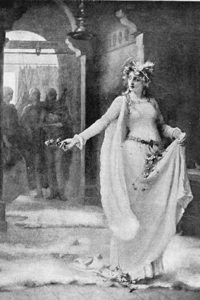http://www.hampsteadstage.org/shows_shakespeare.html I unfortunately have to miss this show when it comes around next weekend (previous, unbreakably family engagement) but didn’t want others to miss it.
Our interactive educational tours run year-round and are performed by two professional actors, each playing multiple roles. Our scripts are original adaptations, based directly on literary classics, and include children and adults from the audience. The plays last one hour, with a question and answer session following the performance. We travel to your space and bring our own realistic sets and costumes, designed using extensive historical research, which are flexible enough to fit into any assembly/performance space.
It’s hard to find info on their actual shows, as their web site seems more geared toward “You can pay us to come to your school and perform.” Which is also awesome – more schools should do this. Has anybody ever seen one of these shows? I think my kids would love it.

